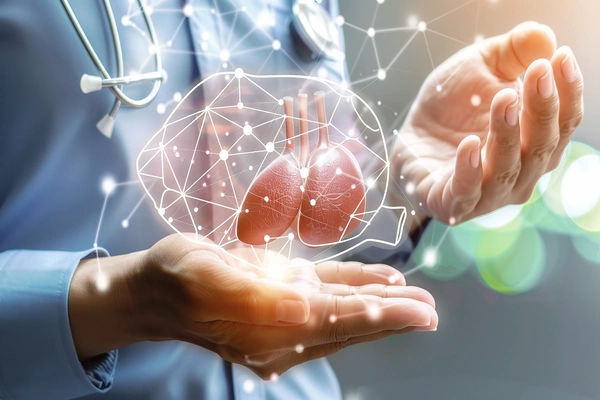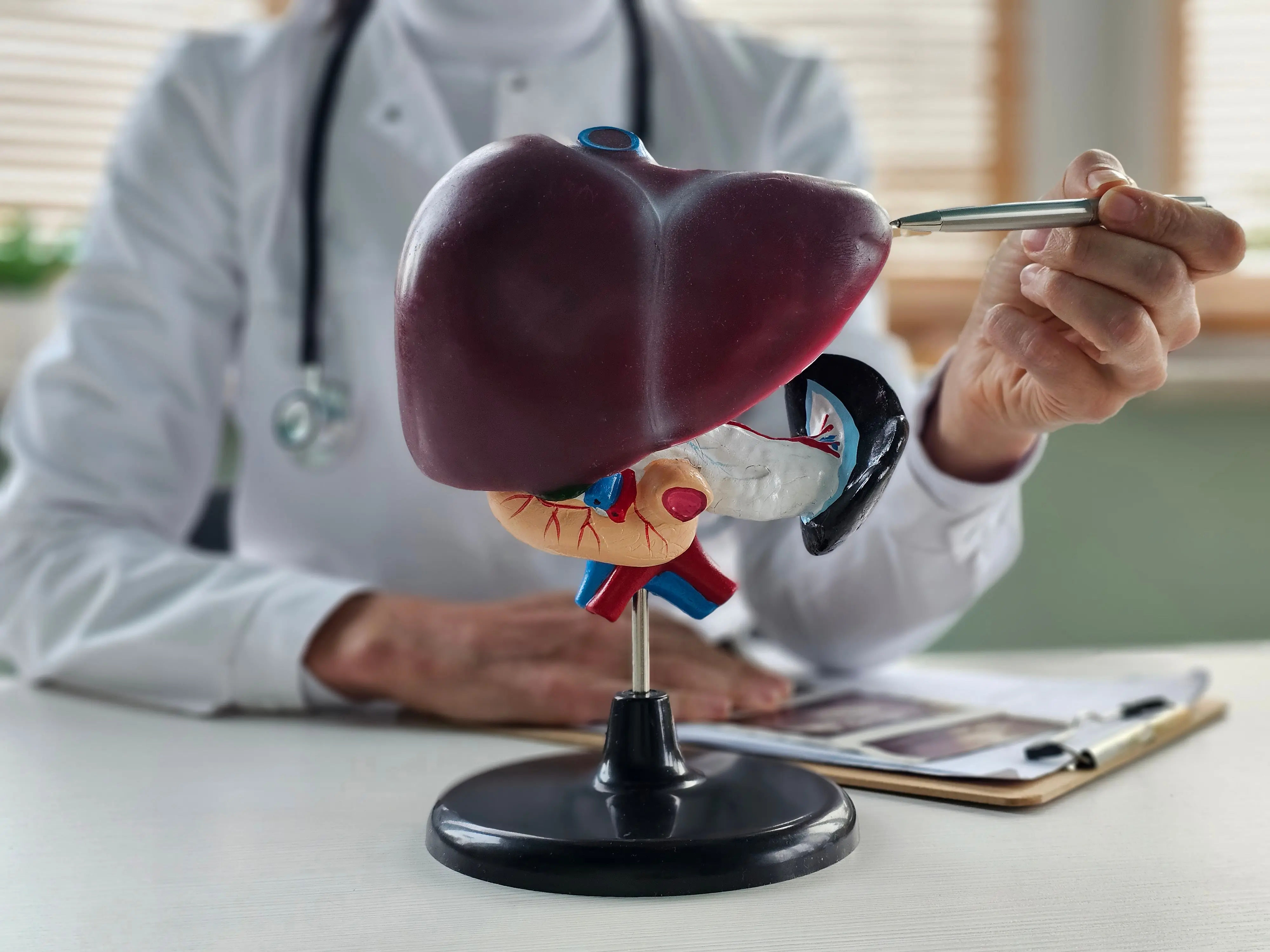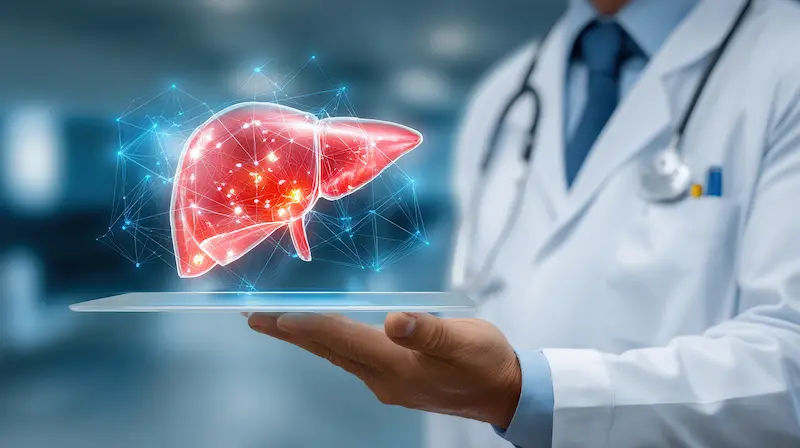Guide to Signs of Liver Damage You Should Never Ignore
Learn about the signs of liver damage you should never ignore, including key symptoms, causes, and when to seek medical attention for timely treatment.


Your liver is your body's unsung hero, a powerhouse organ performing over 500 vital functions. It filters toxins, produces essential proteins, aids digestion, and regulates energy storage. Because it's so resilient, liver damage can often go unnoticed until it reaches a critical stage. Early detection is paramount. Ignoring the subtle whispers of a struggling liver can have severe consequences. This guide will walk you through the crucial signs of liver damage you must be aware of, empowering you to take action for your health.
Understanding Your Liver's Role
Before diving into the symptoms, it's helpful to understand what your liver does. Located in the upper right quadrant of your abdomen, it's your body's primary filtration system. Key functions include:
Detoxification: Processing and removing harmful substances from the blood.
Bile Production: Essential for breaking down fats during digestion.
Metabolism: Managing carbohydrates, fats, and proteins.
Storage: Storing vitamins, minerals, and glycogen for energy.
Protein Synthesis: Creating crucial proteins for blood clotting and other functions.
When the liver is damaged, these processes begin to falter, sending signals throughout your body.
Consult a Top Hepatologist
Early Warning Signs of Liver Problems
The initial symptoms of liver distress are often vague and easily mistaken for other common ailments. This is why they are so frequently ignored.
Persistent Fatigue and Weakness
One of the most common and debilitating early signs is an overwhelming sense of fatigue that isn't relieved by rest. This isn't just everyday tiredness; it's a deep, persistent exhaustion caused by your body's struggle to eliminate toxins and regulate metabolism.
Unexplained Digestive Issues
The liver plays a central role in digestion through bile production. Early symptoms of a fatty liver or other damage can include:
Frequent nausea or vomiting, especially a sick feeling after eating fatty foods.
Loss of appetite and sudden, unintentional weight loss.
Persistent indigestion or irritable bowel syndrome (IBS)-like symptoms.
Abdominal Discomfort: Pain and Swelling
Liver inflammation can cause discomfort or a dull, aching pain in the upper right abdomen. This is where the liver is located. As damage progresses, it can lead to ascites—a buildup of fluid in the abdominal cavity, causing noticeable swelling, bloating, and a feeling of fullness.
Visible Physical Symptoms of Liver Damage
As liver function declines, more visible signs can appear on your skin and body.
Jaundice: The Yellow Warning
Jaundice is one of the most classic symptoms of liver failure. It causes a yellowing of the skin, the whites of the eyes, and even mucous membranes. This yellow hue is caused by a buildup of bilirubin, a yellow-orange bile pigment that a healthy liver would normally process and excrete.
Skin Changes: Itching and Spider Angiomas
Pruritus (Itchy Skin): A persistent, often maddening itch all over the body can occur due to bile salt deposits under the skin.
Spider Angiomas: These are small, spider-like blood vessels visible just beneath the skin's surface, often on the chest and face. They are caused by elevated estrogen levels, which a damaged liver cannot properly metabolize.
Changes in Urine and Stool Color
Dark Urine: Urine that is dark brown, amber, or orange can be a sign of excess bilirubin being excreted through the kidneys.
Pale or Tar-Colored Stools: Healthy stools are brown due to bilirubin. If stools are pale, clay-colored, or putty-like, it indicates a problem with bile production or drainage.
## Signs of Advanced Liver Disease (Cirrhosis)
When long-term damage causes scarring (cirrhosis), the symptoms become more severe and indicate significant liver impairment.
Easy Bruising and Bleeding
The liver produces proteins necessary for blood clotting. When impaired, you may bruise very easily, experience prolonged bleeding from minor cuts, or have frequent nosebleeds.
Swelling in Legs and Ankles (Edema)
Similar to abdominal swelling, fluid can also accumulate in the legs and ankles (peripheral edema). This happens because the damaged liver can't produce enough albumin, a protein that helps retain blood fluid in the vessels.
Confusion and Cognitive Issues (Hepatic Encephalopathy)
A liver that can't filter toxins allows them to travel to the brain. This can lead to:
Confusion, brain fog, and difficulty concentrating.
Personality changes, irritability, and memory loss.
In severe cases, disorientation and slurred speech.
Less Common But Critical Signs to Watch For
Some symptoms are rarer but point directly to serious liver complications.
Gynecomastia (Enlarged Breasts in Men): Caused by the disrupted hormone metabolism.
Reddened Palms (Palmar Erythema): Unusually red and warm palms.
Fetor Hepaticus: A distinct, sweet, musty breath odor caused by dimethyl sulfide in the blood.
What to Do If You Experience These Symptoms
If you recognize any of these signs of liver damage, especially in combination, it is crucial to consult a healthcare professional immediately. Do not wait. Early intervention can prevent further damage and even reverse some conditions, like those caused by alcoholic liver disease or non-alcoholic fatty liver disease (NAFLD).
1. See Your Doctor: Describe all your symptoms in detail, even those that seem minor.
2. Get Tested: Blood tests (Liver Function Tests or LFTs) can assess enzyme levels and liver health. Imaging tests like an ultrasound, CT scan, or FibroScan can evaluate the liver's structure.
3. Review Your Lifestyle: Be honest with your doctor about alcohol consumption, medications (including over-the-counter and supplements), and diet.
Get Your Health Assessed
Conclusion
Your liver is a remarkably tolerant organ, but it has its limits. The signs of liver damage are its way of crying out for help. While symptoms like fatigue and nausea are easy to dismiss, they can be the critical early warnings of an underlying problem. Listening to your body and recognizing these signals from the yellow tinge of jaundice to the unexplained itch of your skin could save your life. Prioritizing liver health through a balanced diet, limited alcohol consumption, and regular check-ups is the best defense. If any of these signs sound familiar, take action today. Schedule an appointment with your doctor; it's the most important step you can take for your long-term well-being.
Consult a Top Hepatologist
Consult a Top Hepatologist

Dr. Pukhraj Singh Jeji
Gastroenterology/gi Medicine Specialist
13 Years • MBBS, MD ( Internal Medicine ), DM ( Gastroenterology ), Consultant - Gastroenterology
Bhubaneswar
Apollo Hospitals Old Sainik School Road, Bhubaneswar

Dr. Akshatha Manjunath
General Surgeon
8 Years • MBBS, MS
Bangalore
Apollo Clinic Bellandur, Bangalore

Dr. E Prabhakar Sastry
General Physician/ Internal Medicine Specialist
40 Years • MD(Internal Medicine)
Manikonda Jagir
Apollo Clinic, Manikonda, Manikonda Jagir
(150+ Patients)

Dr. Sushith C
General Physician
2 Years • MBBS
Bengaluru
PRESTIGE SHANTHINIKETAN - SOCIETY CLINIC, Bengaluru

Dr. Pavan Kumar Y M
Gastroenterology/gi Medicine Specialist
5 Years • MBBS, MD Medicine, DM Gastroenterology
Bengaluru
Apollo Medical Center, Marathahalli, Bengaluru





